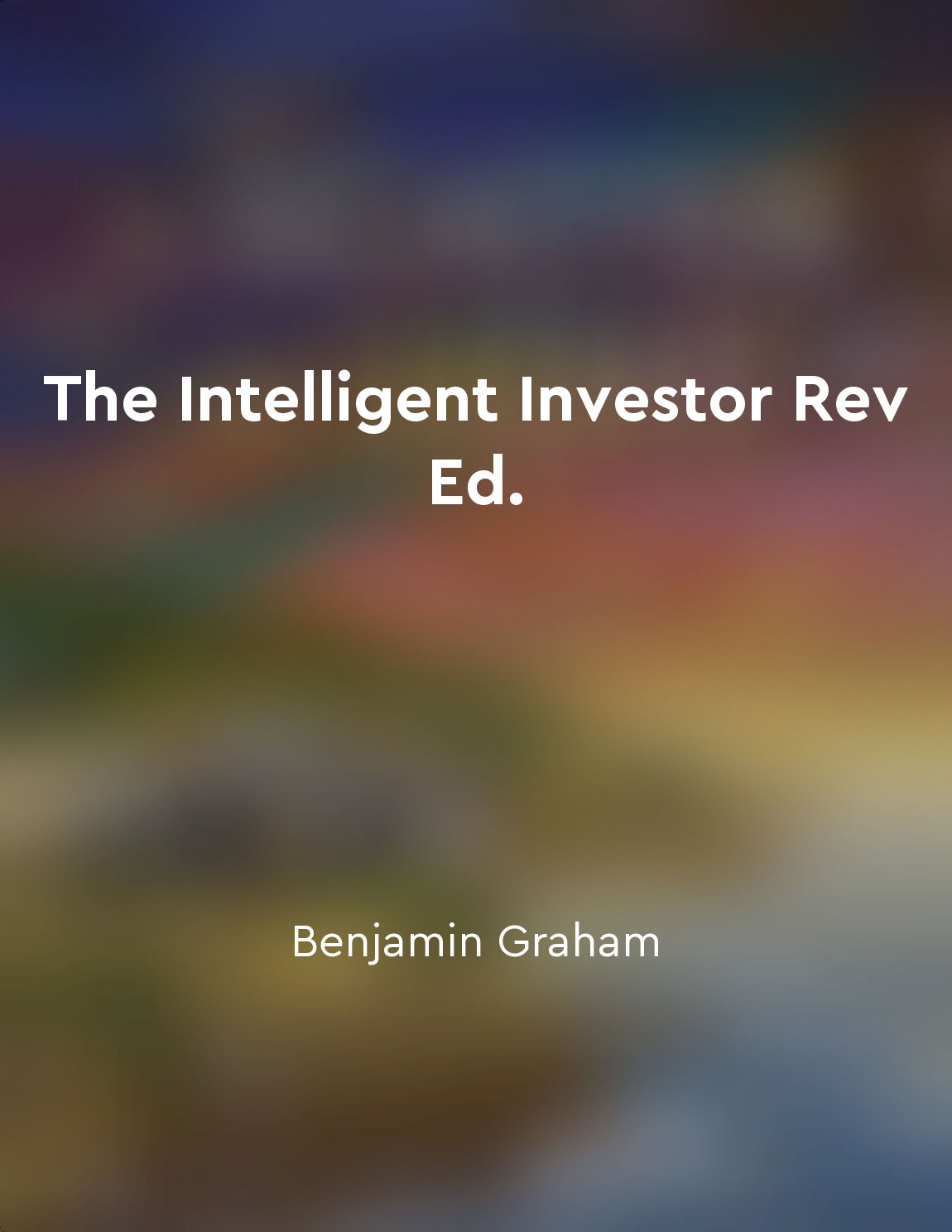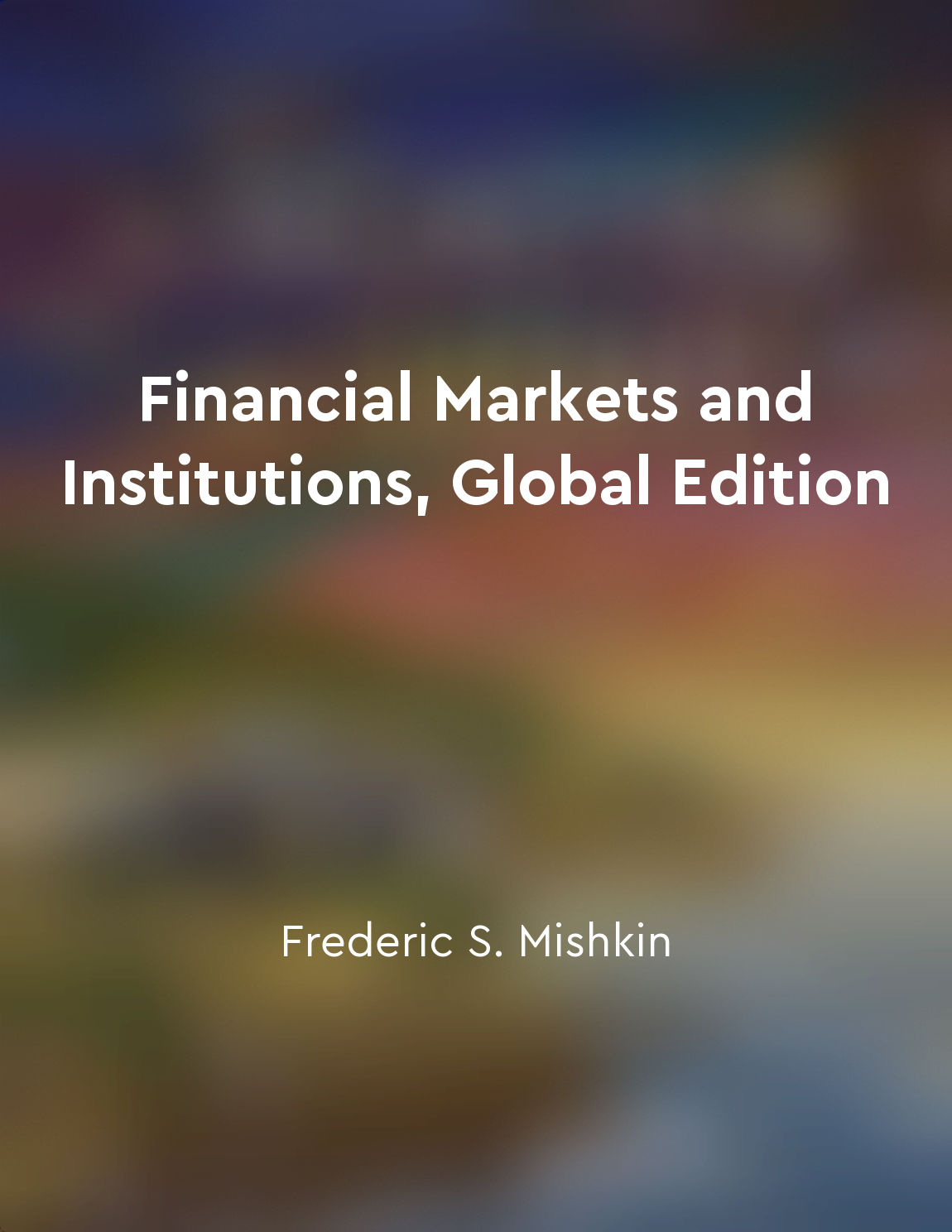Derivatives such as futures and options enable risk management from "summary" of Financial Markets and Institutions, Global Edition by Frederic S. Mishkin,Stanley G. Eakins
Derivatives, such as futures and options, play a critical role in enabling risk management in financial markets. These financial instruments allow investors to hedge against potential losses by locking in prices for future transactions. For example, a farmer can use futures contracts to protect against a drop in the price of crops, while a company can utilize options to safeguard against fluctuations in interest rates. By using derivatives, investors can reduce their exposure to various risks, such as price volatility, interest rate changes, or currency fluctuations. This risk management strategy helps to stabilize cash flows and protect investments from unexpected market movements. In essence, derivatives provide a way for market participants to mitigate uncertainty and ensure a more predictable financial outcome. Moreover, derivatives offer flexibility and customization in managing risk. Investors can tailor their derivative contracts to suit their specific needs and objectives. For instance, they can choose different expiration dates, strike prices, or underlying assets to align with their risk tolerance and investment goals. This level of customization allows investors to fine-tune their risk management strategies according to changing market conditions. Furthermore, derivatives provide liquidity and efficiency in risk management. These instruments are traded on organized exchanges or over-the-counter markets, allowing investors to easily buy or sell them as needed. This liquidity ensures that investors can quickly adjust their risk positions in response to new information or market developments. Additionally, the standardized nature of many derivative contracts enhances market efficiency by promoting price discovery and reducing transaction costs.- Derivatives serve as valuable tools for risk management in financial markets. They enable investors to protect against uncertainty, customize their risk exposure, and enhance market liquidity and efficiency. By incorporating derivatives into their investment strategies, market participants can better navigate the complexities of the financial landscape and safeguard their assets from unforeseen risks.
Similar Posts
Market crashes are inevitable
Market crashes are inevitable. This might sound like a bold statement, but history has shown us time and time again that this i...
Focus on quality over quantity when selecting trades
When it comes to selecting trades, it is crucial to prioritize quality over quantity. This means focusing on the trades that ha...

Keep your investment strategy simple
The concept of keeping your investment strategy simple is crucial in the world of investing. It is easy to get caught up in the...
Overconfidence blinds investors to the dangers of speculative manias
The belief in one's own exceptional insight is a common feature of speculative manias. Investors become convinced that they pos...
Climate crisis ignored in pursuit of profit
The climate crisis is one of the most pressing issues of our time, yet it is often pushed aside in the relentless pursuit of pr...
Challenges associated with algorithmic decisionmaking
Algorithmic decision-making poses a myriad of challenges that go beyond the technical aspects of coding and data analysis. One ...
Be wary of getrich-quick schemes
It's a tempting idea, isn't it? The promise of quick and easy wealth, without the need for hard work or patience. Who wouldn't ...
Saving early and consistently is a wise move
The idea that saving early and consistently is a wise move might seem obvious, but the implications are more profound than they...
Learn from your trading mistakes
Trading in the stock market is a learning process that involves making decisions based on various factors. It is common for tra...

Financial markets are interconnected on a global scale
The interconnectedness of financial markets on a global scale is a fundamental feature of the modern financial system. This int...


